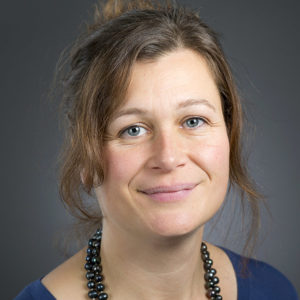Canada’s buildings are a leading contributor to climate change. To meet our climate goals, nearly every existing building in Canada will have to undergo retrofits to reduce carbon emissions, and new buildings will need to be extremely energy efficient.
On June 10, 2021 Mohawk College, along with experts from the National Research Council of Canada and EllisDon, explored how we can train our workforce to build better and support tremendous growth in construction, skilled trades and engineering.
With the circular economy principle there are many opportunities for training and new sector growth. The opportunity here in Canada is within the end-of-life stage of building and how we can use materials and develop a sector with new training, new business and new skills.
Dr. Alexandra Thompson
High Performance Buildings Program Lead, National Research Council of Canada
The panel featured Dr. Alexandra (Lexi) Thompson, leader of the High Performance Buildings Program at the National Research Council of Canada’s Construction Research Centre. Lexi was join by Témo Cruz, an Assistant Program Manager within the prefabrication and modular department at EllisDon, and Dr. Tony Cupido, the Research Chair of Sustainable Building Technologies at Mohawk College. Moderated by C2R2 Sustainability Advisor, Dr. David Wheeler, the group discussed the challenges and opportunities within the Canadian building sector.
Lexi shared some of the work being done by the National Research Council to further examine high performance buildings, embodied carbon, and new sector growth. She emphasized the need to engage and work closely with industry, in a collaborative approach, to quickly impact building related emissions. Multi-disciplinary and coordinated approaches between policy from government policy, innovation from industry, and training from academic institutions was outlined as a vital requirement to ensure Canada can meet its carbon goals.
Témo explored EllisDon’s newest department focussing on prefabrication and modular construction. He broke the stigma of modular homes, explaining how they have been used through out history to rapidly and efficiently respond to a changing economy. As an emerging sector, Témo noted the employment opportunities and transformation of work that is occurring.
The Joyce Centre for Partnership & Innovation at Mohawk College incorporates leading-edge energy harvesting and conservation technologies and techniques. At 96,000 square feet, the $54-million centre is Hamilton’s first zero-carbon institutional building, and one of the largest in Canada. As the lead on that project, Tony shared his experience of designing, constructing and monitoring a net zero building. Act as a living lab, Tony discussed the innovative technologies within the building and the opportunities for training and upskilling the future workforce.

Our Expert Panelists
 Alexandra Thompson, Ph.D
Alexandra Thompson, Ph.D
High Performance Buildings Program Leader, National Research Council of Canada
Alexandra (Lexi) Thompson leads the High Performance Buildings Program at the National Research Council Canada’s Construction Research Centre. The Program recently won the 2021 NRC Outstanding Achievement Award for ‘Value for Canada’. Prior to leading the HPB R&D Program, she was the Team Lead for the Lighting and Ventilation Quality group. Lexi has a PhD in human factors and has published widely on the human response to the built environment.
 Témo Cruz
Témo Cruz
Assistant Project Manager, Prefabrication & Modular, EllisDon
Témo Cruz is a Mohawk College 2013 Alumni from the Advanced Architectural Technology Diploma and 2017 Alumni from Conestoga College’s Bachelor of Technology Architecture and Facility Management program. Since his formal education including valuable co-ops, he has several years of industry experience, working along-side renowned architects, engineers, BIM technologists, superintendents, executives and project managers. His current role as an Assistant Project Manager within the prefabrication & modular division at EllisDon allows him to advance his mission. Previously, Témo launched LeafBox Concepts, a clean-tech startup offering up-cycled shipping containers for retail and event applications.
Témo’s career for city-building integrates his passions for sustainable architecture, prefabricated & modular manufacturing and emerging technologies. With a mission to advance solutions that build equitable smart cities of the future. He is committed to applying solutions to help solve the global problems of our generation: climate change, the ‘missing middle’ housing crisis & the COVID-19 pandemic.
His drive is fueled by his Mexican heritage & immigration journey to Canada. With the purpose to apply creativity, hard work and knowledge of city-building to his new home.
Tony Cupido, Ph.D, P. Eng.
Research Chair of Sustainable Building Technologies, Mohawk College
Tony is a professional engineer with 39 years experience in engineering, facilities management and capital development. He has considerable institutional experience, particularly with McMaster University and Mohawk College where he is the inaugural Research Chair, Sustainability. He is providing leading-edge research that will contribute to a low-carbon economy, while engaging students to develop a multi-disciplinary focus on finding real world solutions to social, economic and environmental challenges.
In his leadership capacity at Mohawk College, he was responsible for the planning, design, construction and operation of Canada’s largest institutional, zero carbon building – The Joyce Centre for Partnership and Innovation. This award-winning facility became the first to achieve dual certification under the CaGBC’s Zero Carbon Building program. He has participated, nationally and internationally, in numerous speaking engagements and formal lectures and has been a strong proponent for high performance buildings. He has a doctorate degree in Civil Engineering with a focus on green buildings and policy and is a former adjunct faculty member at McMaster University. He was recently appointed to the Board of Directors for the CaGBC as the representative for Academia and Research.
